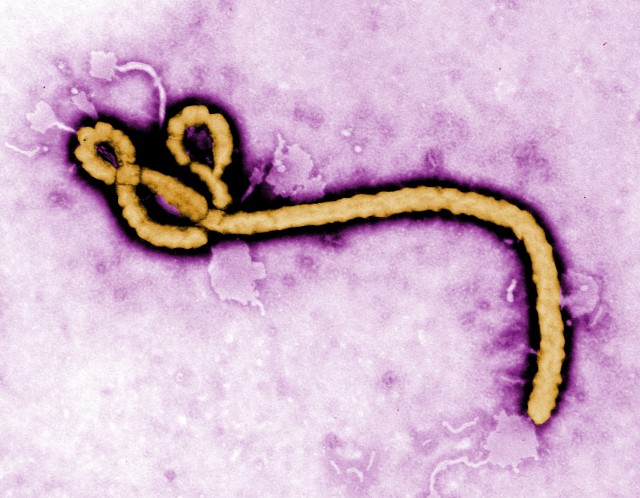Nurses’ medical costs are covered by workers’ compensation if they become ill while on the job, but the nurses want an additional life insurance-type policy added to their contract that would provide cash to their families if they were to become ill or die from Ebola, or another infectious disease.
Nurses say Kaiser has not yet responded to this particular contractual request in bargaining, and Kaiser declined to comment on this piece of the negotiation. But the hospital system says it did begin rolling out enhanced training this week, including a video that demonstrates the proper way to put on and take off protective suits, and “table top” and “simulation” exercises where nurses walk through scenarios of screening and caring for patients who may have Ebola.
“Patients arriving at any of our facilities or who dial our call centers are being screened for symptoms, a travel history, or contact with others who may be ill,” said Dr. Stephen Parodi, Kaiser’s infectious disease specialist, in a statement. “We will activate our emergency-preparedness plans if a person has a positive screening and an infectious disease specialist will be called into the case immediately.”
But the hospital continues to clash with nurses over protective gear. Kaiser says it is following guidelines from the Centers for Disease Control and Prevention and providing Tyvek suits, surgical gowns, books, masks, and face shields at its medical centers.
“We don’t believe what the CDC has recommended is adequate,” McClure says.
Nurses want full-body hazardous material suits that they’ve seen health care workers at other hospitals and medical clean-up crews wearing on television, including the Dallas crew that picked up the bed linens from the apartment where Thomas Duncan, the Liberian man who died of Ebola, stayed while ill.
“They went in with full Hazmats,” McClure said, in reference to the suits. “We want the same high standard for health care workers that are directly dealing with patients who are very ill.”
The California Nurses’ Association and its partner National Nurses United have been actively involved in the national discussion on Ebola, hosting rallies and press conferences, particularly after a nurse in Dallas became ill with the virus. The union released results of a national survey that found 80 percent of nurses said their hospital had not communicated any policy regarding the potential admission of patients infected with Ebola.
The CDC says it is now “rethinking” its guidelines for Ebola infection control, and vowed on Tuesday to dispatch a specialized CDC response team to any hospital with a confirmed Ebola diagnosis.
